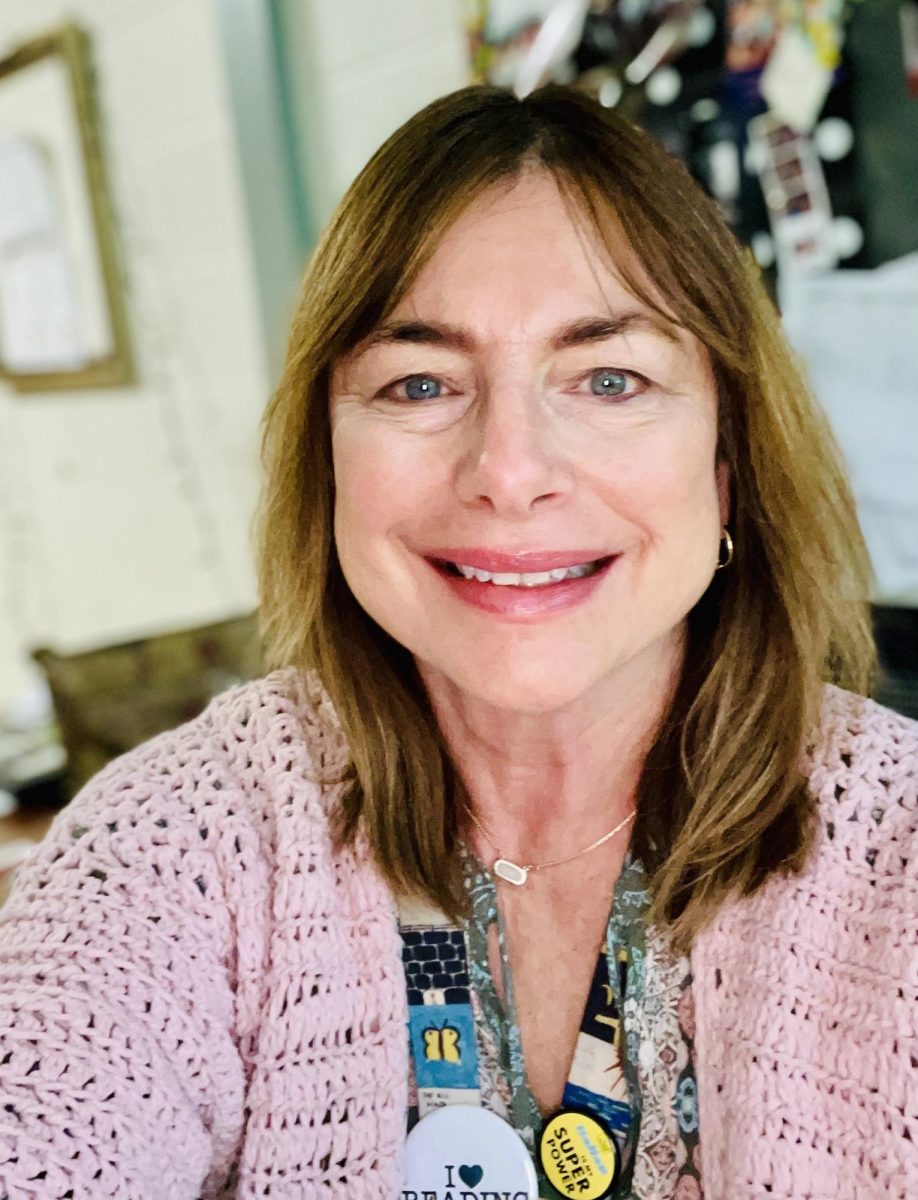Special guest arrives at South – Actress Mary Badham, who played the role of Scout Finch in To Kill a Mockingbird, comes to South to speak to parents and students.
Photo by Vikrant Bhatnagar
One day, freshman Hallie Liman and her mother sat down together to watch the iconic movie To Kill a Mockingbird. As the movie progressed, Hallie began to wonder about the lives of the cast members and where they were now. After searching the name “Mary Badham,” the actress who played the part of the young Scout Finch, Liman discovered that Badham was speaking at a college in New Jersey that very night. Interested by this, Liman and her mother drove to see Badham speak. Liman was both inspired and impressed by Badham and decided to write her a letter that night asking her to come to South and inspire more students. Liman’s mother got in touch with Badham, and the actress agreed to come and share her story with South.
Thus, South recently welcomed actress Mary Badham to speak about her role in To Kill a Mockingbird, the movie based on the novel by Harper Lee. This timeless novel tells the story of Scout Finch, a smart young girl who grows to learn about the injustices and horrors of racism in the South and eventually how to overcome them.
Mary Badham had a similar experience to that of Scout Finch; hence, it was extremely appropriate for the young girl to play this role. In fact, Badham had never dreamed of playing this role or even being an actress: her biggest dream and goal in life was to be a big-animal veterinarian. That is why she retired at the ripe age of 14, which resulted in her moving back to Alabama from Los Angeles. This move was the cause of many of the decisions that have led Badham to where she is now.
Before Badham moved to L.A., her hometown of Birmingham, Alabama, showed her similar prejudices and racisms as the fictional character Scout Finch saw. In her speech, she told two stories about racism, two stories which draw parallels to To Kill a Mockingbird as well. Badham had a nanny whom she loved just as much as Scout loved Cal – even calling her “my Calpurnia.” Badham narrated a story about forced segregation that separated her and this woman so dear to her on a crowded bus in Birmingham: she was forced to sit in the front “white” section of the bus, and her nanny was forced to sit on the back. Badham said this incident scarred her, and she blocked it out for many years, deeming it as her “first real introduction to bigotry.”
After this incident and a few years, she moved to L.A., where things were different. She said she and her family ate dinner and socialized with families of various nationalities – something Badham had never been exposed to before in the highly segregated city of Birmingham. In addition to this new lifestyle in L.A., Badham told the audience of her wonderful role models from her movie cast family, including Gregory Peck (Atticus Finch) and Brock Peters (Tom Robinson).
Her experiences in L.A. made it that much harder to retire back to Birmingham and adjust to a racist and segregated lifestyle once more. This led Badham to her next story of the bigotry she experienced, when she invited her African American delivery boy in on a hot, Southern day for a snack and some lemonade. As they were chatting about books, Badham’s mother pulled her out of the room and told her that the boy had to go; Badham quoted her as saying, “You are not in California anymore.” After her father agreed , Badham knew that Alabama was no longer for her; she felt “like a rubberband,” pulled between her life in L.A. and in Birmingham. She explained to all the students gathered that she could not stay in a place “where friendships depended on the color of skin.” She moved out to Arizona, completing school there and meeting her husband there as well.
To Kill a Mockingbird has continued to influence Badham’s life to this very day. She describes the novel as “important to us as a country and as a people.” She tours the country speaking to many different audiences about the issues of racism and the lessons from To Kill a Mockingbird that we can still apply today. Badham says, “The storyline keeps me going all the time. These are trying times, and the issues of the novel are relevant to right now.”
She describes the reaction most people had to the original release of the movie as positive, as people began to have “conversations which needed to be had.” Badham believes these conversations should not stop – she believes there are still many issues with race and discrimination facing us today, and she added, “no one should be discriminated against.” She feels a duty to keep these lessons from both the novel and the movie alive and well in today’s world.
Badham closed her presentation with emphasis on a lesson that she has learned throughout her life, throughout her portrayal of Scout Finch, and throughout her journey speaking to thousands of students: “Ignorance is the root of all evil. Education is the key to freedom.”
Parents help organize Mary Badham appearance – (left to right) Judy Liman, Mary Badham, Ms. Elliott, and Julie Aronowitz.
Photo by Vikrant Bhatnagar







